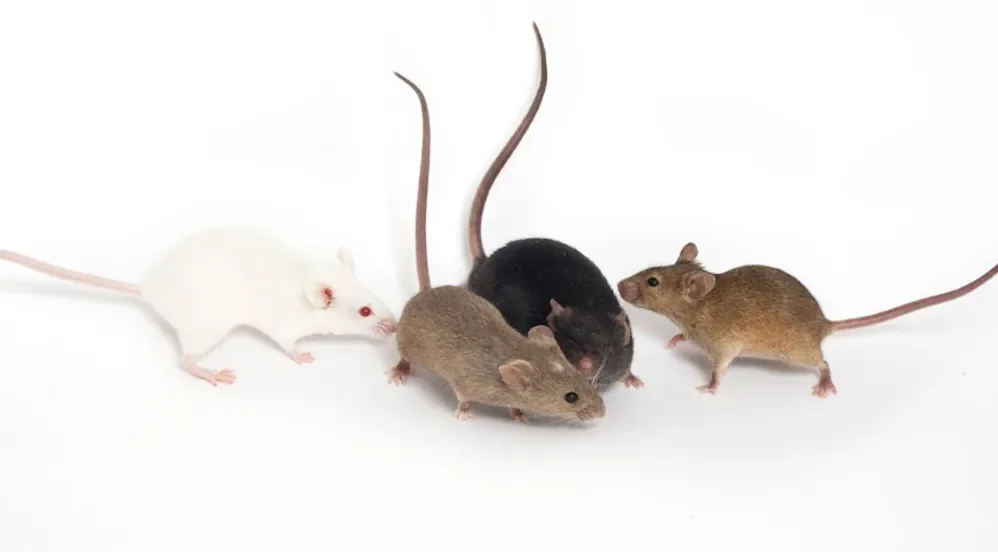Unlocking age-dependent coronavirus susceptibility
Research Highlight | August 3, 2020

Older people are at greater risk of contracting and dying from SARS-CoV-2, the virus that causes COVID-19, but the range of infectivity varies widely even among the elderly. To tease out the genetic factors that contribute to coronavirus susceptibility, Vineet Menachery, Ph.D., of the University of Texas Medical Branch in Galveston is working with a genetically diverse panel of mice to explore how host genetics impacts age-dependent susceptibility to infection.
Collaborative Cross mice, the brainchild of JAX scientists including Professors Elissa Chesler, Ph.D., and Gary Churchill, Ph.D., and their international collaborators, are the product of interbreeding eight genetically defined inbred mouse strains. Altogether, the resulting recombinant mouse strains reflect more genetic diversity than the entire human population.
The National Institute of Allergy and Infectious Disease has awarded a two-year exploratory grant to Menachery, in collaboration with Jason Bubier, Ph.D., a JAX research scientist in Chesler’s lab, to identify the regions of the genome involved in controlling variable susceptibility to SARS-CoV, the coronavirus that caused the Severe Acute Respiratory Syndrome pandemic of the early 2000s
Menachery is looking at a subset of the Collaborative Cross mice that behave differently across age in response to viral infection. “One set of strains gets more disease as the mice age,” Bubier says, “another set has equivalent disease in old and young, and the third group become resistant as they age.”
“Our preliminary results indicate that certain genetic elements contribute to age-dependent susceptibly to SARS-CoV infection,” Menachery says. “These genetic factors will provide a foundation for understanding the role of genetic variation in coronavirus infection and aging processes, and we expect the results to also to inform future treatment approaches for COVID-19 in elderly patients.”
National Institute of Allergy and Infectious Disease: The Host Genetics of Age-Dependent Susceptibility, Grant Number 1R21AI145400-01A1



